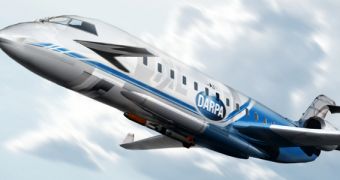As part of its Airborne Launch Assist Space Access (ALASA) program, the US Defense Advanced Research Projects Agency (DARPA) has just tasked the Boeing Company with building and demonstrating a new type of satellite launch system. The corporation is to build a low-cost airborne launcher system, capable of sending small satellites into Earth's orbit from within the atmosphere.
DARPA has recently awarded Boeing with a $104 million (€75 million) grant for this project, officials from the Agency announced on the Federal Business Opportunities website on Monday, March 24.
“The goal of ALASA is to develop a significantly less expensive approach for routinely launching small satellites, with a goal of at least threefold reduction in costs compared to current military and US commercial launch costs,” a post on the official DARPA website explains.
According to officials, the new launcher will have to be able to deliver satellites weighing up to 45 kilograms (100 pounds) into low-Earth orbit. Average costs should not exceed $1 million (€720,000) per launch. Whatever aircraft Boeing produces will need to have the ability to relocate and launch from any major runway in the United States.
In addition to Boeing, Lockheed Martin and Virgin Galactic also received DARPA contracts for developing airborne satellite launchers, back in 2012. The Agency aims for a demonstration flight sometime in fiscal year 2015, Space News reports.

 14 DAY TRIAL //
14 DAY TRIAL //